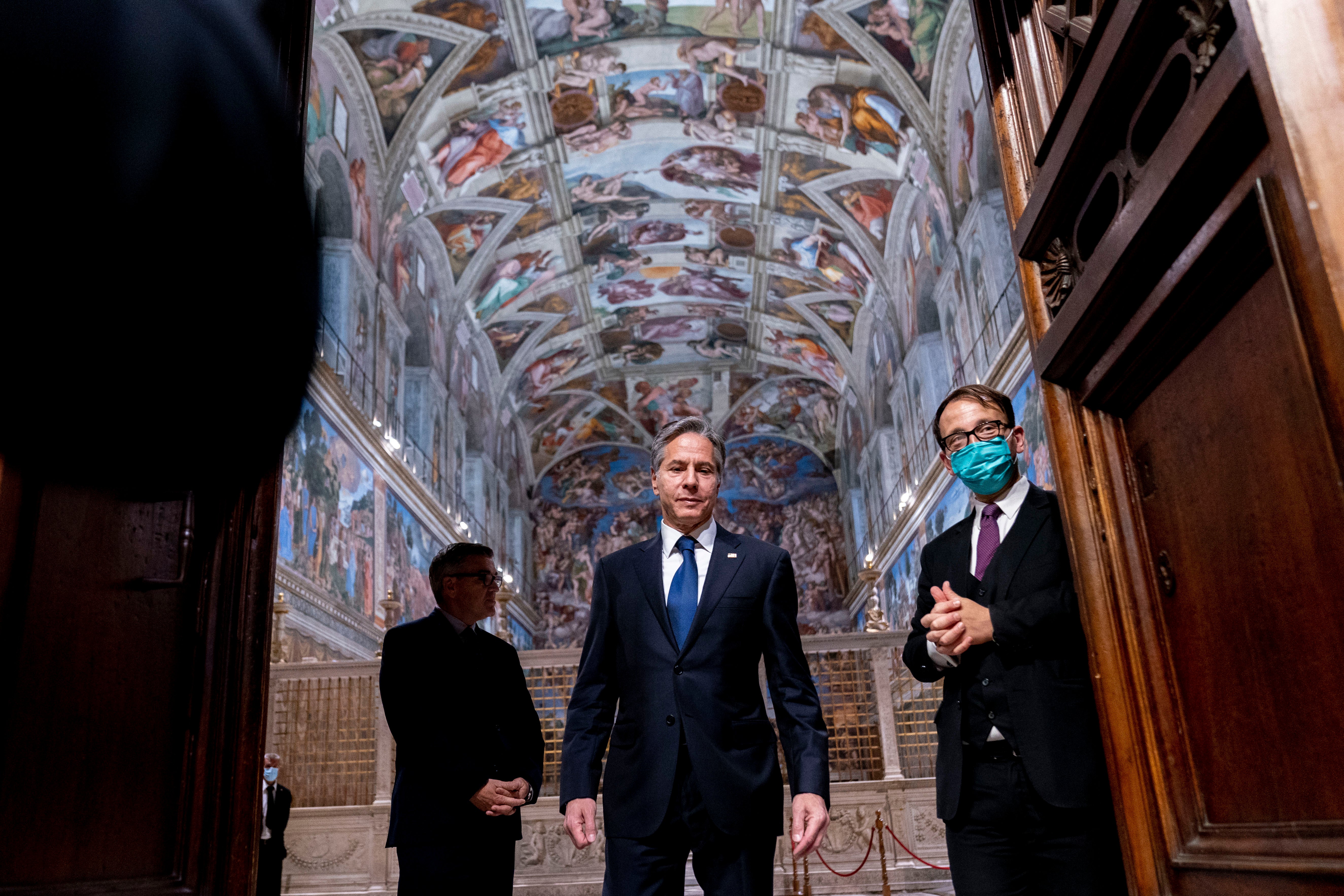Nations chart future steps against Islamic State extremists
As the Biden administration rapidly completes the U.S. military withdrawal from Afghanistan, members of the global coalition fighting the Islamic State are meeting to plot future steps against the extremist group

Your support helps us to tell the story
From reproductive rights to climate change to Big Tech, The Independent is on the ground when the story is developing. Whether it's investigating the financials of Elon Musk's pro-Trump PAC or producing our latest documentary, 'The A Word', which shines a light on the American women fighting for reproductive rights, we know how important it is to parse out the facts from the messaging.
At such a critical moment in US history, we need reporters on the ground. Your donation allows us to keep sending journalists to speak to both sides of the story.
The Independent is trusted by Americans across the entire political spectrum. And unlike many other quality news outlets, we choose not to lock Americans out of our reporting and analysis with paywalls. We believe quality journalism should be available to everyone, paid for by those who can afford it.
Your support makes all the difference.As the U.S. works on its military withdrawal from Afghanistan, members of the global coalition fighting the Islamic State group met Monday to plot future steps against the extremist group.
The meeting came just a day after the U.S. launched airstrikes against Iran-backed militias near the Iraq-Syria border.
U.S. Secretary of State Antony Blinken and Italian Foreign Minister Luigi Di Maio were co-chairing the gathering of senior officials from the seven-year-old, 83-member bloc. Participants were taking stock of their current efforts to ensure the complete defeat of IS, whose remnants still pose a threat in Iraq and Syria and have shown signs of surging in parts of Africa.
Amid significant other international priorities, including taming the coronavirus pandemic and stepping up the fight against climate change, the coalition is hoping to stabilize areas liberated from IS, repatriate and hold foreign fighters accountable for their actions and combat extremist messaging.
Blinken and Di Maio urged representatives of the 77 other countries and five organizations that make up the coalition not to drop their guard despite the destruction of the extremist group's hold over broad swaths of territory in Iraq and Syria.
“Daesh can still be a threat and attract support,” Di Maio said, referring the Islamic State by its Arabic acronym. He appealed for special attention to be paid to Africa, notably in the Sahel region, where IS is gaining traction and called for the coalition to create a special mechanism to deal with that threat.
Blinken noted that despite their defeat, IS elements in Iraq and Syria "still aspire to conduct large scale attacks."
“Together, we must stay as committed to our stabilization goals as we did to our military campaign that resulted in victory on the battlefield,” he said.
Blinken announced a new U.S. contribution of $436 million to assist displaced people in Syria and surrounding countries and called for a new effort to repatriate and rehabilitate or prosecute some 10,000 IS fighters who remain imprisoned by the Syrian Defense Forces.
“This situation is simply untenable,” Blinken said. “It just can’t persist indefinitely.”
The meeting was the first the coalition has had at a senior level that has been held in-person since the COVID-19 pandemic began.
In addition to the meeting on IS, foreign ministers of countries concerned with the broader conflict in Syria were to meet in Rome on Monday ahead of a critical vote at the United Nations on whether to maintain a humanitarian aid corridor from Turkey. Russia has resisted reauthorizing the channel amid stalled peace talks between the Syrian government and rebel groups.
Last week, the U.N. special envoy for Syria, Geir Pederson, said there were worrying signs that the Islamic State may be getting stronger in the country and called for a boost in cooperation to counter it. Pederson has also joined calls for new international talks on ending Syria's civil war.
Since the Syrian conflict erupted in March 2011, numerous high-level gatherings aimed at ending the fighting and guiding the country to a political transition have failed to have any lasting impact.
The U.N., U.S., Russia and many other countries support a December 2015 Security Council resolution endorsing a road map to peace in Syria that calls for a new constitution followed by U.N.-supervised elections.